The Conference of California Bar Associations (CCBA) held its annual 3-day conference in San Diego from September 12–14, meeting as it always does at the same time and place as the State Bar Annual Meeting. BASF sent a delegation of more than 30 volunteer attorneys, its largest delegation since the 2009 Conference.
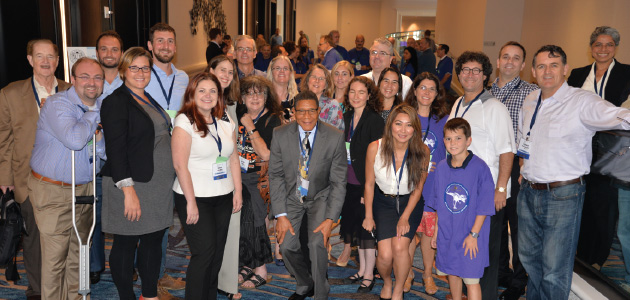
It augurs well for the future of the delegation that no less than nine of its members were participating in the Conference for the first time. Some of those new delegates could not have participated without generous contributions to the new-delegate scholarship fund by Lexis-Nexis and its local small firm representative Mike Mooney, as well as by local law firm Hanson Bridgett, a BASF stalwart. The scholarship fund was created this year to partially cover the expenses of first time delegates so that the important work of the Conference becomes known to a new generation of attorneys. Morrison & Foerster, a long-time supporter of the BASF delegation, underwrote a portion of the delegation’s headquarters suite expenses, thereby ensuring that delegates got to enjoy some well-earned hospitality at the end of each day.
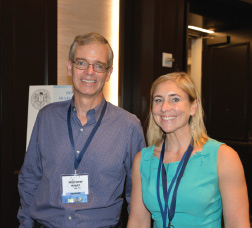
BASF submitted 22 resolutions for debate, considerably more than it had in recent memory, and two of these in particular generated vigorous debate. BASF delegate and Hastings professor Richard Zitrin, who has worked for years at the federal level to enact the Sunshine in Litigation Act (“SILA”), sought the CCBA’s approval of what he hopes will become California’s version of SILA. The goal of SILA is to prevent parties from secretizing, by settlement or stipulated orders, evidence uncovered in litigation where that evidence relates to the public health and safety. Zitrin argued that many lives would have been saved if, for example, General Motors had been forced to acknowledge that its ignitions were defective when it settled the first ignition defect lawsuit. But because GM was able to enter into secrecy agreements with hundreds of plaintiffs the public never learned of the defect, and many more lives were lost. Although some delegations expressed concerns that the resolution would impose undue burdens on the judicial system, and would deprive parties of control over their settlements, the Conference passed the resolution after a lively and impassioned debate.
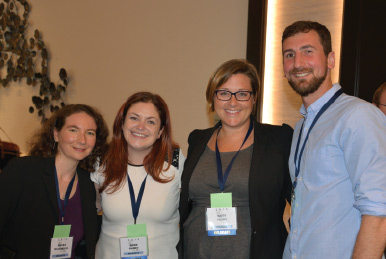
The widespread use of solitary confinement in the correctional system has received considerable attention recently. When a proposal to ban the practice entirely received no support at the Conference BASF delegate Jill McInerney, a dependency lawyer and children’s advocate, offered a more palatable proposal that would instead limit the use of solitary in juvenile detention facilities only. Some delegates, however, had problems with a measure that they viewed as depriving juvenile correctional officers of needed discretion. Jill, although a first-time delegate, demonstrated a veteran’s understanding of Conference politics by lobbying for and obtaining the support of the large Los Angeles delegation, which always helps one’s cause. Debate about crime and punishment, especially as it pertains to children, is always going to be impassioned and every lawyer has strong opinions. Jill’s eloquent appeal to our better nature helped ensure that this important resolution passed the Conference, and may soon be on California’s statute books.
About the Author:
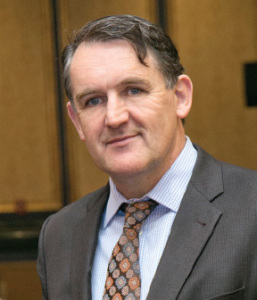 Ciarán O’Sullivan has practiced civil litigation, with a specialty in Trusts and Estates litigation, for the past 16 years. He is the chair of the BASF delegation to the CCBA for 2014, and was a co-chair of BASF’s Trusts and Estates Litigation section from 2008 to 2013.
Ciarán O’Sullivan has practiced civil litigation, with a specialty in Trusts and Estates litigation, for the past 16 years. He is the chair of the BASF delegation to the CCBA for 2014, and was a co-chair of BASF’s Trusts and Estates Litigation section from 2008 to 2013.



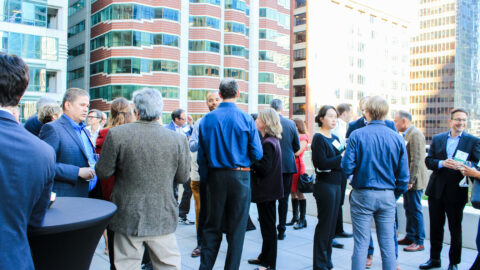
0 comments on “BASF Delegation to Conference of California Bar Associations Biggest in Five Years”